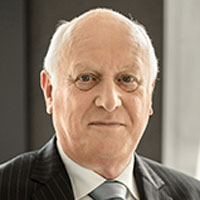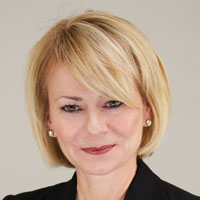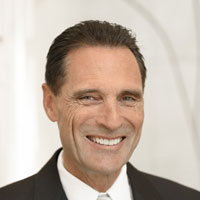Travel giant need not have failed, says Clive Jacobs. He spoke to Ian Taylor
The problems that brought down Thomas Cook go back more than a decade and surfaced spectacularly in 2011 when the group’s share price collapsed following three profit warnings in 12 months.
Cook’s share price fell from a high of £2.59 in March 2010 to 14p at the end of 2011, leaving the group valued at a fraction of the £900 million debt it carried.
More: Thomas Cook ceases trading after failing to salvage rescue deal
Comment: Ten things we know about Thomas Cook’s collapse
Comment: The long death agony of Thomas Cook
Clive Jacobs, owner and chairman of Travel Weekly parent Jacobs Media Group and founder of leisure car rental business Holiday Autos, believes he saw a way to save the company and drew up a rescue plan with former senior Thomas Cook executive Terry Fisher.
Jacobs said: “In 2011, Terry and I felt pretty strongly that Thomas Cook would fail unless there was involvement from someone who understood what the problems were and how to deal with them.
“We started working on this around November 2011 when the share price had collapsed and set out to raise money. I put in a seven-figure sum, as did Terry. We went to major investors in Thomas Cook.
“One of the biggest at the time was investment group Invesco. Terry and I met [Invesco’s then head of UK equities] Neil Woodford, who was a star fund manager at the time. He was prepared to write a cheque for £200 million – half the £400 million we believed we needed. We met other shareholders and got the necessary commitments.
“Why did we get the commitments? We recognised the problem in the group was the UK business and the only way to save Thomas Cook was to take out the debt because it would weigh like an anchor on the business, dragging it down.
“We proposed selling off all the businesses outside the UK. We estimated at the time this would raise £1 billion to £1.5 billion to pay down the debt, pay down the pension fund liability and fund a turnaround plan in the UK.”
He explained: “There were several elements to the problems. First, the merger between Airtours and Thomas Cook in 2007 was flawed. It strategically confused Thomas Cook about what it was in the UK. Forget the financial issues. Cook was trying to be a vertically integrated tour operator to compete with Tui. But staff in the agencies saw Cook as a travel agency business selling independent product.
“Second, the tour operator business was heavily biased towards the eastern Mediterranean and did not have the best inventory. Thomas Cook was operating with one hand tied behind its back.
“On top of that, the business had recklessly doubled its UK travel agency network [through its merger with The Co-operative Travel in 2011] when it should have been investing in its website. Thomas Cook was unquestionably the biggest brand in travel. With investment it could have been a serious rival to Expedia and other online travel agents.”
‘Cook had too many stores’
The rescue plan was ready to present to the Thomas Cook board in early 2012, having been drawn up from “information in the public domain, annual reports and Terry’s first-hand experience as a senior executive in the business”.
Jacobs summarised the proposal: “We would sell off the other businesses to fix the UK business. Cook had too many agencies and too many properties [in the UK]. It was operating out of way too many sites. It had a UK airline where 20% of its take-offs and landings involved ‘ghost’ flights [empty aircraft] because of bad positioning.”
He insisted: “We did not think it would be easy, but we believed Cook would have a fighting chance.
“Then we went with Invesco to meet the Thomas Cook chairman, Frank Meysman.”
Jacobs believes the chairman “wasn’t prepared to listen”. He was shocked days later when the meeting was reported in the Financial Times, believing the details must have been leaked. Jacobs noted: “The share price rose and put some hunger back into [Thomas Cook’s] shareholders. I’m not sure the board ever got to hear of our plan. I can’t say whether the board made a judgement on it.”
He points out: “This was a business in deep, deep trouble, with its balance sheet inflated by intangibles and at the mercy of accountants and bankers who stood to profit from its woes.
“With the business in such a precarious position, what the board did next was hire someone as chief executive [Harriet Green] who had no experience of turning around a business of that size and scale and no experience of the travel industry.
“Cook already had a chairman [Meysman] who had no travel experience and who had never been a chief executive.” Jacobs said: “I felt the chairman did not have a full understanding of the business.”
‘Highly dysfunctional’
Jacobs added: “It’s a travesty to see a company with a more than 100-year legacy vanish through poor management and bad decisions.
“My motivation, and Terry’s, was to rescue the business. The German and Scandinavian businesses were sound, vertically integrated businesses that were well-oiled and running very well without the complexity and dysfunctionality of the UK business.”
Jacobs explained: “Two things made the UK business highly dysfunctional – Airtours and the agencies. Thomas Cook UK didn’t know whether it was a travel agency business or a vertically integrated travel group, and nobody had really tackled that. Culturally and institutionally it was a travel agency business. Structurally it was a vertically integrated business.”
He acknowledged: “The problems predated the takeover of Airtours. Thomas Cook was always struggling to work out what it was. It had been a travel agency business, with business travel and foreign exchange. That was another mistake – selling off the foreign exchange business [in 2001] and the corporate travel business [in 1994]. There was a catalogue of mistakes.”
But he insisted: “There is always a tipping point, and the tipping point was the acquisition of The Co operative Travel. It set the business on a highly flawed path when the business should have been reducing its high street agencies, streamlining its call centres and becoming a more online business.
“The period 2011-12 was critical and it needed the right actions taken. We recognised then that failure to take the right action would end in failure [of the company].”
Jacobs added: “People can criticise [former chief executives] Manny Fontenla-Novoa, Harriet Green and Peter Fankhauser. It’s easy to attack what these people were paid and the mistakes they made. But it is the duty of the chairman and the board of a publicly listed company to take care of governance and shareholder interest.
“To allow strategic decisions that worsened the situation and to pay people bonuses for doing so is the fault of the chairman and the non executive directors.”
Jacobs is also critical of the accountancy firms “which year in, year out allowed such a high level of intangibles [assets] to remain on Thomas Cook’s balance sheet, allowing the world to think the business was more solvent than it was”.
But he said: “Lessons are never learnt because there is too much money at stake.”
There will be similar problems in businesses, Jacobs argued, “until there is serious governance; until it is stipulated that boards have people on them who understand the business they preside over”.
He said: “In politics, you can be foreign secretary and know nothing about geography or defence secretary and not be able to fire a gun. In business, you have chairmen and directors not able to understand a business and relying on consultants and their reports.
“People need to be held accountable. It’s easy to stoke a witch-hunt, but it will achieve nothing. It’s not the fault of the executives. It’s the fault of those who were supposed to manage them.
“The real issue with Thomas Cook was failing to put people into the business who understood what was wrong – regardless of whether it was me and Terry. It’s tragic for the employees, for the businesses and for suppliers, and it need not have happened.”
Thomas Cook timeline 2011-12
July 2011: Group issues third profit warning in 12 months (after two in August and September 2010). Competition Commission gives go-ahead for Cook/Co-op merger
August: Chief executive Manny Fontenla-Novoa resigns. Sam Weihagen takes interim role
September: Frank Meysman appointed to be chairman from December
October: Cook agrees £100m credit deal with banks; completes merger with The Co-operative Travel
November: Suspends results announcement pending fresh deal with banks. Announces £200m credit deal
December: Full-year results show UK contributes just 10% of group profits
March 2012: Meysman rejects takeover rescue proposal
April: Cook confirms fresh talks on refinancing
May: £1.4bn refinancing; finance director steps down; Harriet Green appointed chief executive
July: Green takes up post
What the papers said
The Financial Times, March 15, 2012, reported:
“The chairman of Thomas Cook has rejected a proposal by a group led by two leisure industry veterans and backed by some shareholders of the travel operator to inject £400 million into the company.
“Frank Meysman dismissed the plan after representatives of the group met the Thomas Cook chairman two weeks ago…The plan had the support of Invesco, second-largest shareholder with 10.44%, and several other shareholders.
“The group of investors includes travel industry veteran Terry Fisher, formerly of Airtours who sold tour operator Gold Medal to Thomas Cook in 2008 and ran its scheduled business before resigning in 2010. Other backers include Clive Jacobs, who founded leisure car rental business Holiday Autos and is owner and chairman of Travel Weekly Group.”
Thomas Cook: Who was who
 Terry Fisher: founded travel agency chain Travelworld which he sold to Airtours (subsequently rebranded MyTravel) in 1998. Ran Airtours’ agency chain Going Places until 2001. In 2006, he became managing director of Gold Medal. Thomas Cook took over Airtours/MyTravel in 2007 and acquired Gold Medal, with Fisher, in 2008. Fisher was group head of scheduled services at Cook when he resigned in December 2010.
Terry Fisher: founded travel agency chain Travelworld which he sold to Airtours (subsequently rebranded MyTravel) in 1998. Ran Airtours’ agency chain Going Places until 2001. In 2006, he became managing director of Gold Medal. Thomas Cook took over Airtours/MyTravel in 2007 and acquired Gold Medal, with Fisher, in 2008. Fisher was group head of scheduled services at Cook when he resigned in December 2010.
 Manny Fontenla-Novoa: joined Cook in 1972 and left for International Leisure Group in 1988. ILG collapsed in 1991 and Fontenla-Novoa co-founded tour operator Sunworld with ILG colleague and future First Choice and Tui chief Peter Long. Cook acquired Sunworld in 1996. Fontenla-Novoa appointed chief executive in 2003. Resigned 2011.
Manny Fontenla-Novoa: joined Cook in 1972 and left for International Leisure Group in 1988. ILG collapsed in 1991 and Fontenla-Novoa co-founded tour operator Sunworld with ILG colleague and future First Choice and Tui chief Peter Long. Cook acquired Sunworld in 1996. Fontenla-Novoa appointed chief executive in 2003. Resigned 2011.
 Frank Meysman: former marketing director of Douwe Egberts, chairman of a Dutch engineering consultancy, head of the Belgian advertising standards board and chairman of Dutch business supplies firm Corporate Express. Became Cook chairman in December 2011.
Frank Meysman: former marketing director of Douwe Egberts, chairman of a Dutch engineering consultancy, head of the Belgian advertising standards board and chairman of Dutch business supplies firm Corporate Express. Became Cook chairman in December 2011.
 Harriet Green: joined from electronic components industry as chief executive in July 2012. Left in November 2014.
Harriet Green: joined from electronic components industry as chief executive in July 2012. Left in November 2014.
Peter Fankhauser: joined from Kuoni in 2001. Became chief operating officer in November 2013 and  chief executive in November 2014.
chief executive in November 2014.
More: Thomas Cook ceases trading after failing to salvage rescue deal
